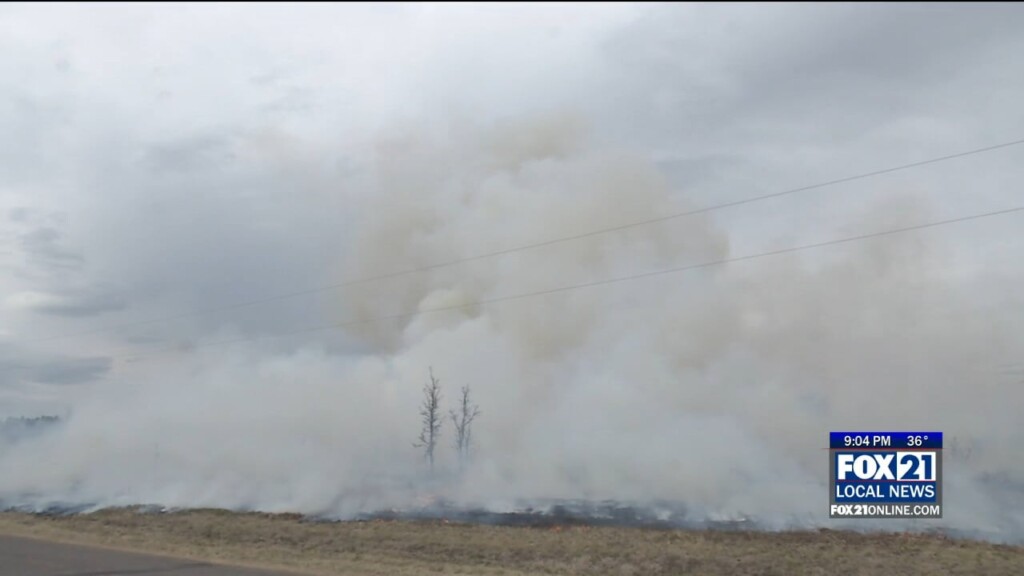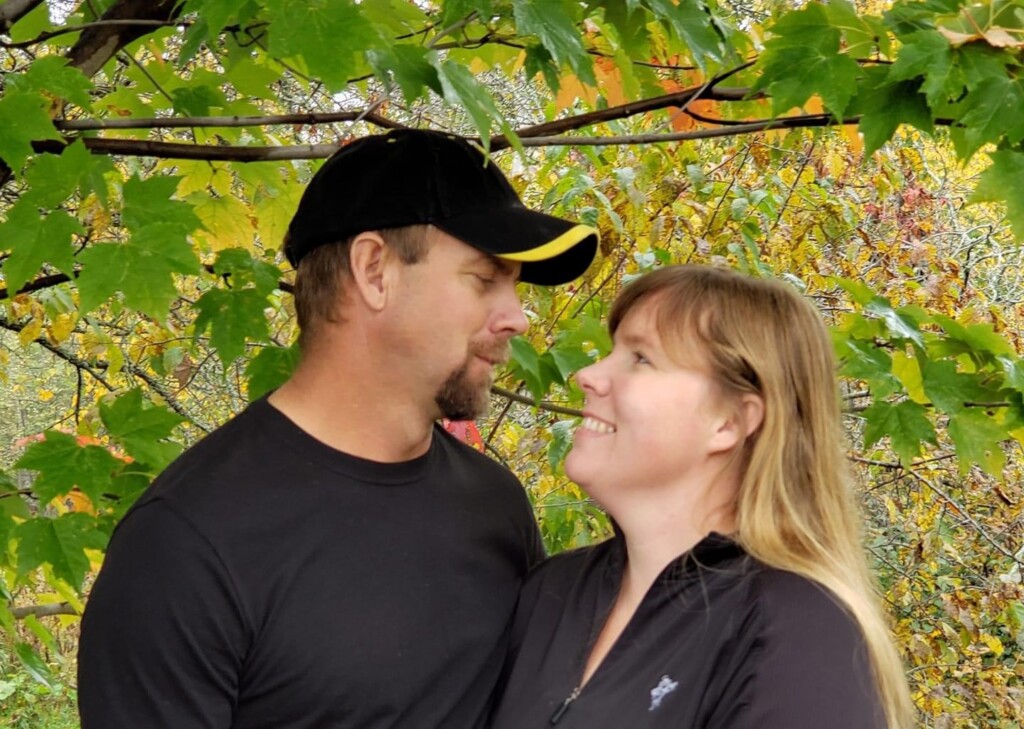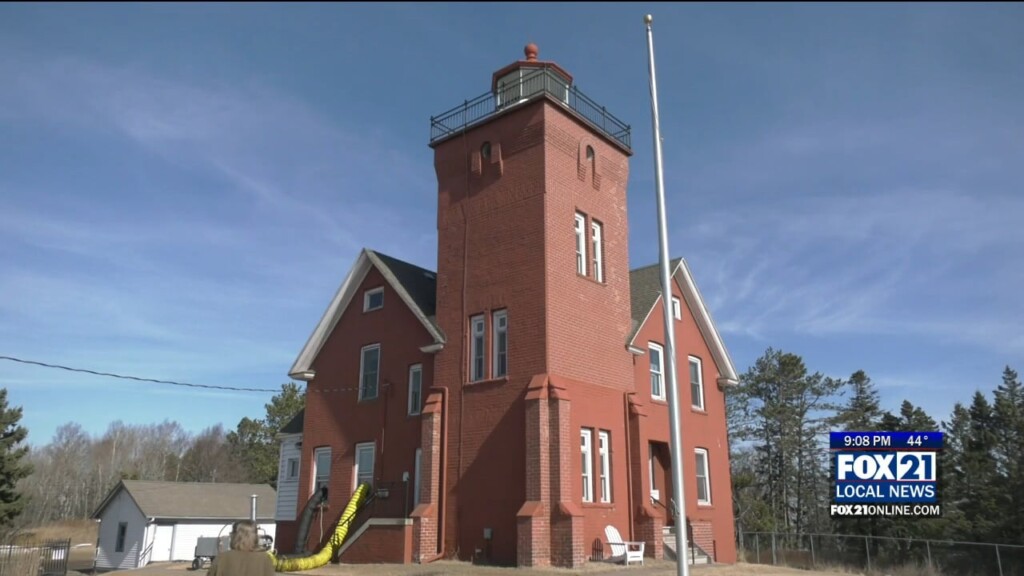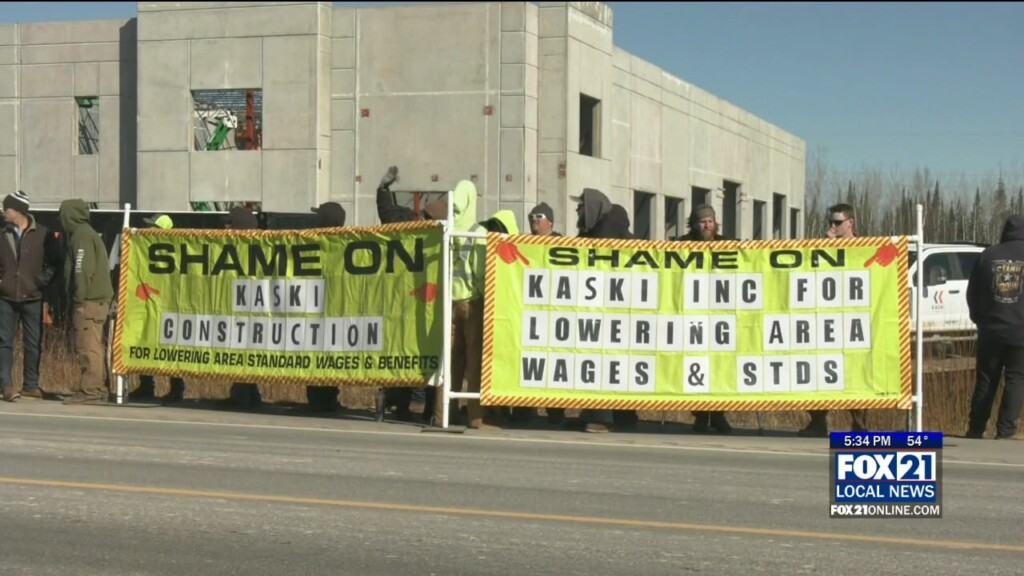Transcript: Superior Mayor Jim Paine’s State of the City Address
“I’d like to thank the Board of Directors and the staff of the Richard I Bong Veteran’s Museum, especially Executive Director John Gidley, for hosting us in this beautiful space. I hope before everyone leaves you can take a moment to appreciate not only the exhibits but the work of the museum, which features professional research, an innovative education program, and direct and dedicated service to our city’s veterans. I’m excited to continue to build the city’s partnership with the Bong this year as we work together to further develop this space as a visitor center and marketing headquarters to tell the story of the whole city. Please join me in thanking John, his staff, and the volunteers of the Bong.
Mr. President, Madam Vice President, City Councilors, Citizens of Superior,
I love campaigning. It’s my favorite part of this job, talking to people. Listening. But it’s not as easy as you think. I don’t mean the talking part, that actually comes quite easy to me, as I’m sure you know. The listening is much harder. Because people usually don’t quite know what to say. If I knock on someone’s door, or sit with them at the St. Anthony fish fry, or talk to them at the grocery store after they’ve stopped me to say that my glasses make me look just like the mayor, I’ll usually ask some variation of the same question: What do you want to see in the city? That’s where they start to struggle. Because when I ask about the city, people often don’t know that much about it. They might reach for an answer about taxes or streets, but even that’s pretty rare lately. Sure taxes could be lower but they are going in the right direction and our streets are pretty good, especially for the region. They just haven’t thought much about the city, or at least they think they haven’t. Because when I ask the question a different way, when I offer them a magic wand or the chance to be Mayor for a day, when I tell them they could do any one thing to the city, something special happens. First their eyes cloud over a bit as imagination takes over, and then they spark back to life as inspiration strikes and a tiny little bit of passion is born as they say something like “I really wish we could…” or “You know what would be nice…” That moment is my favorite part of the job. Ideas are born out of thin air. Because people stop thinking of the city as an institution or a government or even really just a place. It becomes their home, and they want it to be a little bit better. Sometimes they offer an innovative solution to a problem. More often, they raise an idea to make their neighborhood a nicer place to live, or their park more exciting, or their city more interesting. And in almost every case, their ideas are possible. They make me want to get to work.
I usually begin this speech by reflecting on the achievements of the last year. Each time I’ve given it, we’ve had a lot to be proud of. This year was no different. In fact, this year was one of our best. We lowered taxes. We reduced debt. We grew our tax base. We now enjoy the strongest financial and economic health the city has seen in decades. We made new investments in environmental sustainability including solar panels on our Fire Headquarters and hybrid police squads. We invested in housing, increasing our population and density but also built new homes on lots that sat vacant for years. We invested in new technology which increased transparency with our city app and election integrity with the Badger Books digital poll logs. We saved the historic Carnegie Library from almost certain destruction by acquiring it and completing an emergency roof repair. We increased the overtime budget for plow operators to extend our plowing operations and finally saw the return of city plowing on sidewalks, clearing over 26 miles of safe routes to school all winter long. We launched our new ad campaign, “Gotta Be Superior” which is now airing across Wisconsin and teaching the rest of the state that our little city is “Really, Really, Really, Fun”.
Last summer, we did what I firmly believe will be the most important thing any of us will ever do. We returned the sacred burial grounds of the Lake Superior Chippewa to the Fond du Lac Band of Ojibwe. So I want to begin by congratulating you, all of you, that supported this work but I want to especially thank our city council. I opened this event with the video of the Wisconsin Point reclamation ceremony because I wanted you to see the impact you’ve had and the history you’ve made. 10 councilors supported that. Half a dozen staff and countless citizens helped make it happen. Your work changed this city forever.
It has been a good year. Maybe our best ever. This is the part of the speech where I should announce the State of the City; to stand on all we’ve accomplished and claim victory. I should be satisfied with what we’ve achieved. But I’m not. That’s not why I ran for re-election. And I don’t believe the people of Superior gave the council and I these next few years because of how far we’ve come, but because we convinced them of the potential of this city. For years now they’ve watched their city grow and thrive. But councilors, we haven’t satisfied them. We’ve only made them more ambitious.
So it’s time to raise the stakes. I’m proud of my first six years as your Mayor. But I’m not satisfied. I expect more from the next four years. Thankfully, I couldn’t ask for a better team.
A few weeks ago the council elected new leadership in President Nick Ledin and Vice-President Lindsey Graskey. And, before I go further, I just want to say that Councilor Graskey joins Councilors Ludwig and Van Sickle to bring our city four straight years of women serving in the leadership, a streak I’m proud of and that I hope we can keep going. Now, if the rest of you will indulge me, I’d like to address the leadership directly. Mr. President, I know you take your new role seriously and that you don’t expect the next year to be easy. Which is good, because it won’t be. I’ve spoken with all of your colleges in the last few weeks and every single one of them has at least one major policy or project they’d like to accomplish in the next year. All of these goals will improve the city but to achieve them all would take a level of discipline, perseverance, and cooperation that I have never seen from the Superior City Council. So that’s what I would like you to do. I am asking you, please, outperform every single one of your predecessors and deliver to me and to this city the single most productive council we have ever seen. I believe in you.
I’m setting the bar high for the leadership because I don’t think I’ve ever seen the city council quite so inspired and motivated and ready to work. I don’t think I’ve ever seen the council with this much vision. I’m hearing new ideas for our parks, neighborhoods, and business districts; for our environment and our economy; to bring this city alive with art, and culture, and history. I think these are the ideas that got you elected and re-elected and I don’t think your neighbors will settle for the status quo anymore. I know I certainly won’t.
I have tried to build my vision for Superior around new, bold, and grand ideas. But the philosophy and the values that drive these ideas is small and simple. My vision has always been built around the person. The single individual person and their experience in this city. I argued from the beginning that we could build a city that works for everyone. Every… one. So as I build policies and develop projects, I try to keep that one person in mind and move us away from more common attitudes that would develop our cities around things like cars, or businesses, or houses or even concepts like the economy, or sustainability, or growth. These are all vital considerations as we do the work of city building. But the experience of the individual person is what makes a city a great place to live. We can build more housing, but we can also make sure new buildings contribute to great neighborhoods. We can invest in business districts that support actual customers, not just their cars. We can protect the beauty and serenity of our natural places by keeping them beautiful and serene. And before we design any new street, we should pause and look at the whole neighborhood and create a street that benefits the people that live there, not the traffic speeding through.
These ideas sometimes feel like they challenge common sense. But the data, and our own history, backs it up. We know that business is better when customers get there slower. Bicyclists spend more money than drivers when they go shopping. Pedestrians spend even more. Look at our own city. The shops with the least amount of parking have outlasted and outperformed those with more, and the city’s largest parking lots mostly surround businesses that failed. Traffic has repelled business for decades. The construction of Highway 2 preceded a steady exodus of commerce in East End, Allouez, and Itasca but the narrowing of north Tower avenue brought over $60 million in new development in less than 10 years. When I’m campaigning, and I get people to stop thinking about the city and start talking about their city, they start to agree with me, and I think you do too. Which neighborhoods are better: the ones with trees or the ones without? The ones where you know your neighbors or the ones where you don’t? Would you rather live in a city where a kid can walk to school, or one where they need a ride? And on that first glorious, beautiful day of spring, when you step outside in a t-shirt, how far away do you want the park to be, and what do you want it to look like when you get there?
This city was built with these values in mind. But then, somewhere along the way, we set them aside. Rebuilding a city that works for everyone will require reversing 50 years of convention and taking some big risks on bold new ideas.
So the President and I are going to lay out an ambitious agenda for the council. But don’t worry, they’ll have help. City hall is filled with new leaders and professionals that are every bit as eager and ambitious as the city council, which is good, because they’ll have a momentous year ahead of them too. Our new Finance Director, Nick Rhinehart will construct his first budget this summer. Our new Assessor, Terry Johnson will oversee our first full property re-valuation in over 25 years. Our new Fire Chief, Cam Volbrecht has to adapt our fire service to the needs of a 21st century city while still protecting us from fire and destruction, and our new City Clerk, Heidi Blunt, is on only her second day of the job of protecting democracy itself. These bright new leaders are joined by hundreds of staff with years of experience and a record and culture of service and success.
That’s why, as I begin my 7th year in office, I’m feeling pretty lucky. Which is good, I’m going to need it. Because over the next four years I intend to set and complete and agenda that will not only surpass the work of the last six years, but will establish Superior as one of Wisconsin’s most vibrant and successful cities.
In the coming years, or even months, we will connect the first citizens to Connect Superior, our affordable high speed fiber broadband network. We won’t just end the monopoly on internet service, we will close the digital divide and make sure that every single citizen of this city has access to a connection that allows them to fully participate in the culture and economy of the 21st century.
We will build affordable housing in Superior. Our investments in market rate housing have proven that people want to move here and those new residents have brought new prosperity to our community. It’s time we leverage our new fiscal strength to make sure that everyone that already lives here can afford a safe and stable place to live. We’ve built our affordable housing fund to over $1 million dollars but for the next four years, all of our investments in new housing will fund affordability.
Even though our city has grown more wealthy and prosperous, too many of our citizens still struggle with low incomes and higher prices. If we want to build an economy that works for everybody, we can’t be part of the problem. The city’s bills are paid, our reserves are healthy, and our revenues are increasing. It’s time to not just reduce taxes, but fees as well. I’ll ask the city council to reduce our utility fees before the end of the year.
Our police and fire departments already set the standard throughout the state and nation for versatility and effectiveness. They have made Superior one of the safest places to live in the United States. But leadership isn’t just about success, it’s about innovation. That’s why we are going to invest even more in our Fire Department’s new and more efficient medical response vehicle program and in the police department’s efforts at outreach and rehabilitation for citizens facing homelessness, mental illness, and addiction.
We are going to expand our sidewalk plowing operation. Pedestrians are every bit as important as drivers and every citizen, from the youngest kid toddling to elementary school to the oldest senior citizen still walking to the store deserves a safe and navigable path and they deserve it just as quickly as drivers do.
We will follow our transfer of the Wisconsin Point burial grounds with an even closer partnership with the Fond du Lac band of Ojibwe by crafting a management agreement between our two governments for the preservation and restoration of all of Wisconsin Point. For centuries, indigenous people successfully protected our city’s most delicate ecosystem. It’s time we brought back traditional and proven methods of protecting Superior’s most important place.
We will make our largest ever investments in green infrastructure to protect the health of Lake Superior. We’ll plant trees on barren streets, turn storm ditches back into creeks and streams, and replace asphalt parking lots with grass and gardens.
We will continue upgrading our park system with new equipment, bathrooms, and water features, but we’ll also expand it, starting with a beautiful new waterfront park on the St. Louis River and after more than 50 years, we’ll bring swimming back to Billings Park.
We will save the Carnegie Library.
We will save the Princess Theatre.
These two projects are not just about a love for old buildings, they represent a love of the city itself. The Carnegie is not just a vital piece of Superior’s history. As the first and largest of Wisconsin’s collection of Carnegie libraries, we owe an obligation to the entire Badger State to preserve this priceless structure.
But the Princess is perhaps even more significant. Restoring that theatre, in that place, doesn’t just save a building, or some significant piece of architecture. It restores a different time altogether. It brings Superior back to a place where the arts flourished in the heart of our downtown. When the bustle of commerce gave way with the setting sun to the shining lights of the stage. It was a time when life in this city drew people out of their homes and brought them together for shared experiences. We have a chance to restore that sense of community to a new generation.
We will be challenged on every one of these projects. There will be doubts, criticism, and disagreement. That’s reasonable. Everything I’ve just proposed is fraught with risk. It will all be expensive. It will all be difficult. But each one of these proposals is possible, and each one is worth it.
This spring, the public returned every incumbent city official to office unopposed, myself included. You could take that as an extraordinary extension of their trust. But I think it was something more galvanizing for those of us that bear the burden of their judgement. I think it was hope. I think they’ve seen this city flourish these last few years in ways they hadn’t thought possible. I think that many were ready to give up, and that many already had. But you, not just the councilors here tonight but all of the leaders in the room and the many more that couldn’t make it tonight, taught the people of Superior that the potential of this city was real, that their hometown was special. So they’ve given us the most humbling, the most terrifying of responsibilities: They actually think we can live up to their expectations. And they hope we can exceed them.
I’ve tried to use tonight to lay out a vision with big goals. But before I finish, I wanted to tell you about one project that, though small, helped me write this speech and that I hope sets the tone for the coming years.
Jack Sweeney is one of my favorite councilors. Some have erroneously thought of him as more of a cautious skeptic that sometimes slows down the policy process but I’ve always known him to be one of the more aggressive policy makers. At a recent meeting he asked me about a project he’d been suggesting for the better part of a year: Lighted Christmas decorations in the E. 5th St. business district. I eventually learned that this would be challenging and costly so I hadn’t done much to push it forward, but Jack already knew that. He put the proposal to me one more time, but he put it very directly, saying: “If the answer is no, that’s fine. But let’s do it or don’t”. He didn’t mean any offense, but it stuck with me. “Let’s do it or don’t.” What he was proposing may have been difficult and it certainly wasn’t the highest thing on my do list or likely on that of any of my staff and we were about to let it go. But it was worth doing. It’s hard to say exactly how that would benefit the business district, or facilitate transportation, or bring prosperity, or opportunity to that neighborhood. But it would make East End nicer. It would bring a little bit more light to a dark time of year. It might make people happy. It might make them a little more proud to live here. That’s the kind of project that I want to define the next four years. I haven’t given Councilor Sweeney his answer yet, so let me do it now: Jack, we’re going to light up that street this year. It’s going to be beautiful.
Let’s do it or don’t. That is the state of our city. That is where we are. We can stand still, or we can move forward. We can stop now, or we keep going. We have the ideas. We have the means. We have the support of the people. We have leaders capable of getting it done. We don’t have to wait for a better time. If it can be done, it can be done now. By us. So let’s do it.
Citizen of the Year: Butch Liebaert
We have one final piece of business tonight. My favorite part of the State of the City address. Each year I have the privilege of awarding the key to the city to our Citizen of the Year. It’s obviously a challenge to name just one person to represent citizenship but I have some criteria that helps narrow it down. I don’t look to highlight any one act of citizenship. Many of those are worthy of recognition. But strong communities are built on a culture of service. On citizens that place community or country above all else, who dedicate their lives to others. Last year, I decided to have a little fun and attempt to surprise Pastor Will Mowchan with his key to the city. I think that went pretty well so I’ve tried it again this year.
I’ve awarded this key to people that have represented many different kinds of service. But to my knowledge, I’ve never given it to a veteran of the United States Armed Forces. I’ll correct that tonight. When I speak to my fellow veterans I frequently remind them that our oaths we take when we join the military do not expire. That is not something I believe. It’s something I learned. And I learned it from Butch Liebaert. Please step forward Commander.
As a young man, Butch served his country in the United States Army. Now he’s an old man. But he’s never left service, and he’s never abandoned his oath. He is the commander of the American Legion Bong Post 435 and a member of the retired enlisted association. He is a member of the honor guard, standing watch over his fallen friends and comrades as their families say their final farewells. At veterans events he conducts the fallen comrade table ceremony, remembering those that never returned home. He has demonstrated, through a lifetime of devotion, decency, and duty that he does not live for himself but for his family, his friends, and his country. In all his life, he’s never done anything for himself, except, of course, for jumping at the chance to marry his beautiful wife Cheryl.
Now as I’m sure Butch will quickly say, many other men and women would be equally deserving of this award for those reasons alone. What sets Butch apart is how rarely he says no. He is an active member of the Elk’s club, rarely declining any call for volunteers. He spent his working life active in his union, serving as their recording secretary long after his retirement. He attends every public and private event to which he’s been invited and he crashes several parties when he should stay home. I think I might have even seen him sing in the St. Anthony’s choir once. Once.
I thought awarding him this key to the city would be unfair or biased because Butch is such a good friend of mine. But then I remembered that he’s everyone’s good friend. Which is why he is our citizen of the year. Congratulations Commander Liebaert.
Closing
I have just a few final requests if you’ll indulge me. First, someone take Butch out for a beer. Second, take care of your favorite city councilor, I’ve got a busy year planned for them. And finally, when you have time, please, please tell me: If given a magic wand or made Mayor for the day, what would you do for our city? Thank you and goodnight.”







